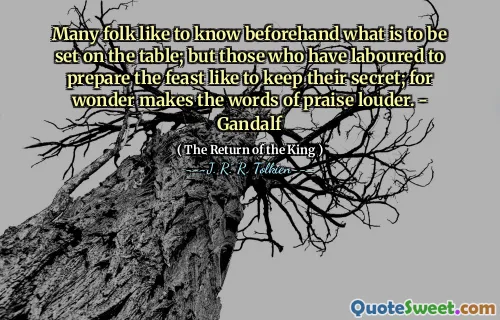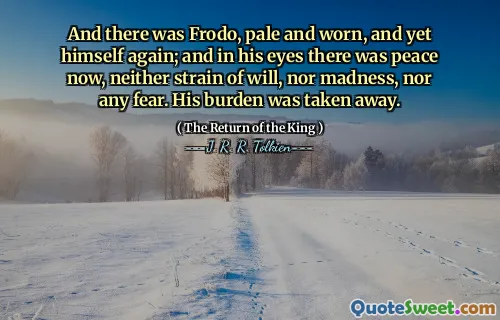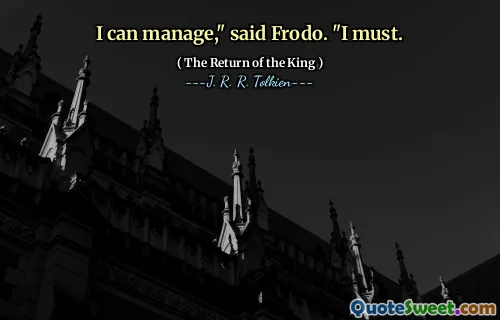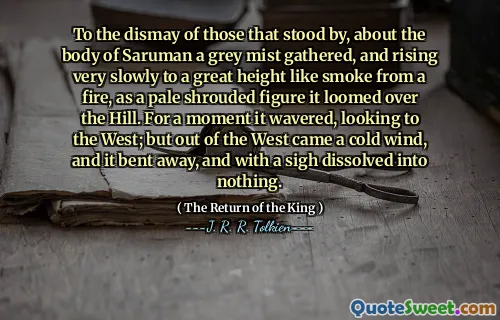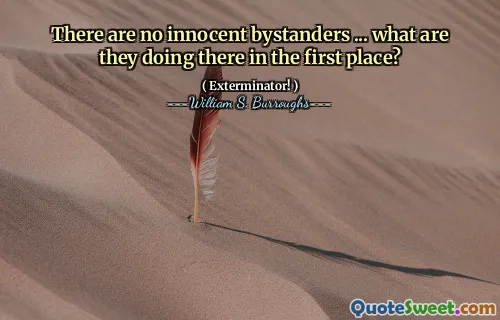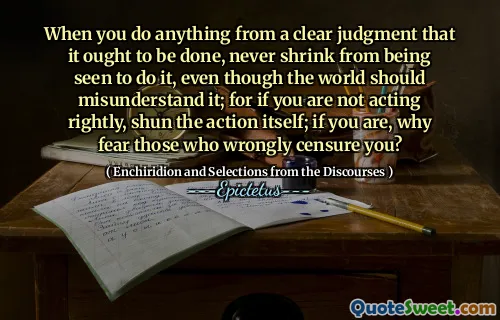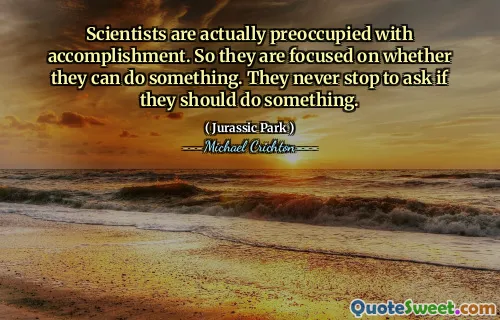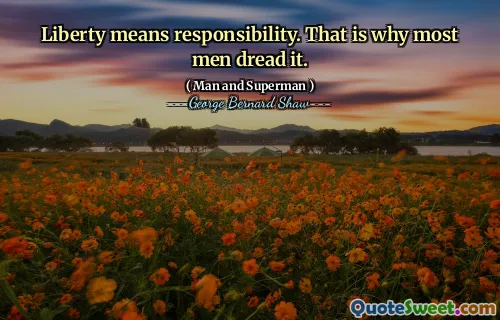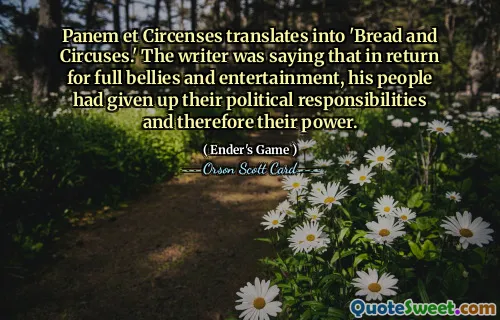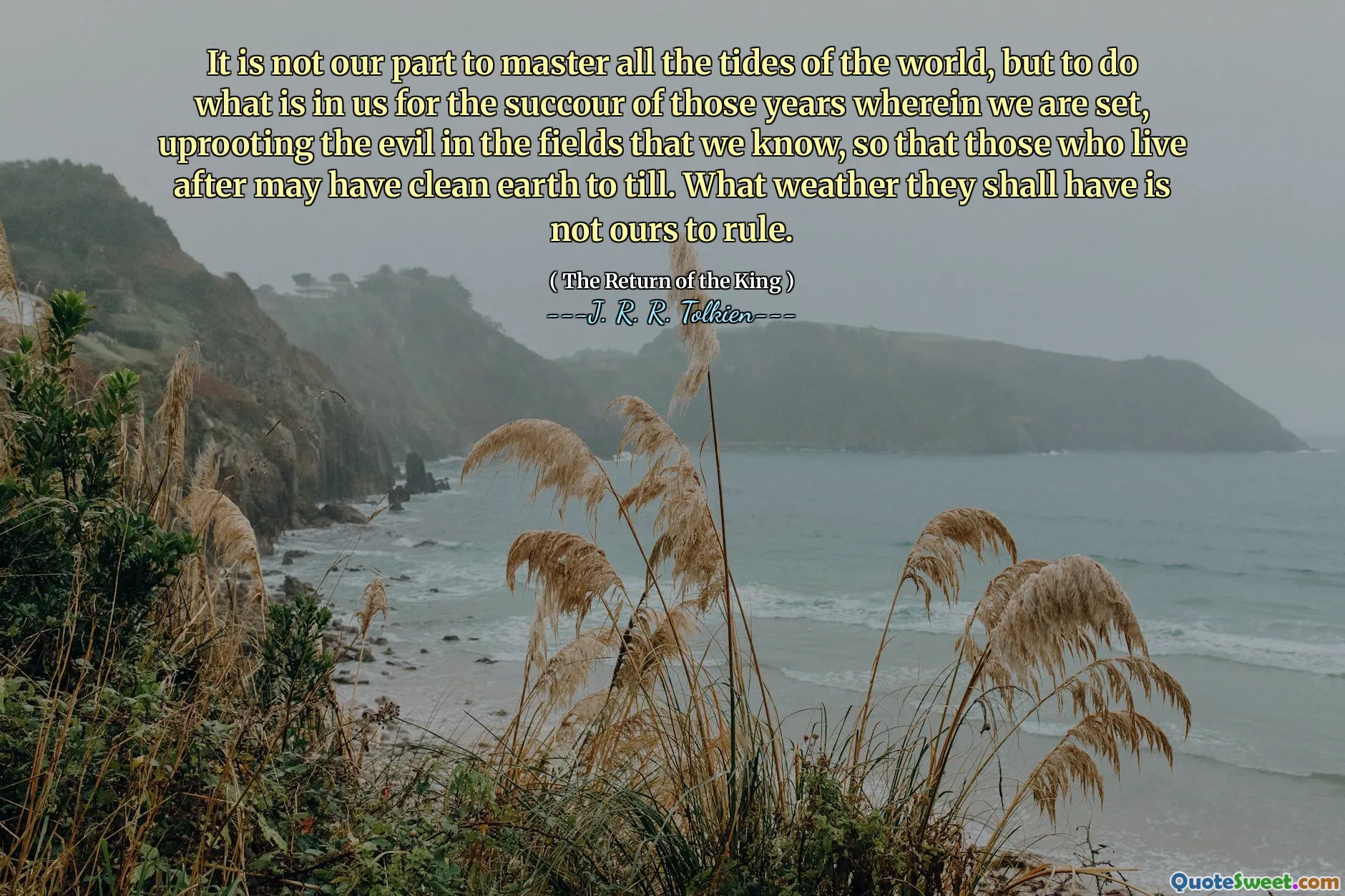
It is not our part to master all the tides of the world, but to do what is in us for the succour of those years wherein we are set, uprooting the evil in the fields that we know, so that those who live after may have clean earth to till. What weather they shall have is not ours to rule.
This quote emphasizes the importance of focusing on one's own responsibilities and moral duties rather than attempting to control every aspect of the world. It advocates for a humble acknowledgment of human limitations—recognizing that we cannot dictate every outcome or manipulate external circumstances fully. Instead, it urges us to concentrate on the actions within our power, making a positive impact where we are positioned. The metaphor of uprooting evil from familiar fields serves as a reminder that change often begins locally, through honest efforts to improve our immediate environment. The idea that future generations will face circumstances beyond our control highlights the necessity of doing good work in the present, regardless of uncertain or uncontrollable future conditions. Such a philosophy aligns with the responsibility we each bear to contribute meaningfully, without becoming overwhelmed by the grand scope of worldly problems. It invites introspection about priorities—encouraging us to act morally, sow kindness, and uproot injustices where we can, trusting that these efforts will create a foundation for a better world. Ultimately, it fosters resilience and a sense of duty grounded in humility, recognizing our limits while emphasizing the power of conscientious actions in shaping a legacy that endures beyond our lifetime.

